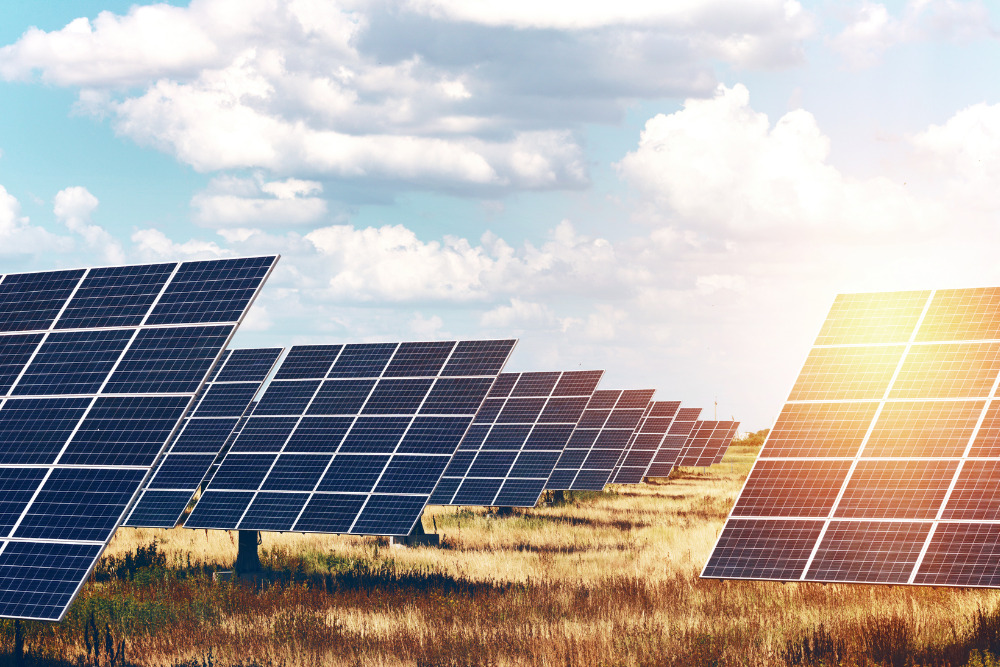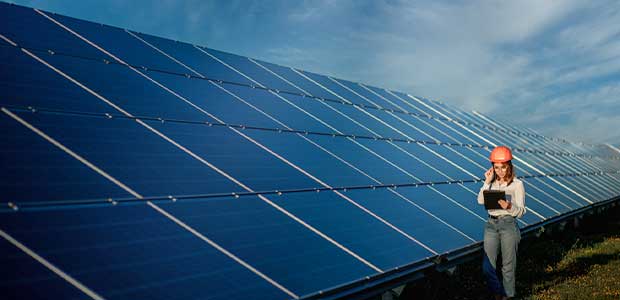Why Simply Solar Illinois is the Top Choice for Renewable Energy
Just How Solar Power Can Help You Save Cash and Reduce Your Carbon Footprint
The integration of solar energy into your power profile presents a compelling opportunity for both economic cost savings and environmental stewardship. By utilizing the sunlight's power, home owners can dramatically reduce their monthly energy expenses while likewise securing versus the changability of future energy prices. The change to solar adds to a significant decline in carbon emissions, straightening personal finance with broader eco-friendly goals. As various federal government motivations appear, the inquiry emerges: exactly how can one efficiently browse the initial investments and continuous advantages of solar modern technology to make the most of both economic and environmental gains?
Recognizing Solar Power Financial Savings
While the shift to solar energy typically includes a preliminary investment, recognizing solar power financial savings is critical for homeowners and businesses alike. Solar power systems can significantly decrease electrical power expenses by utilizing the sun's power, converting right into significant long-lasting monetary benefits.
Moreover, solar energy systems may get different monetary rewards, including tax debts and rebates, better boosting their cost-effectiveness. The accessibility of net metering allows individuals to offer excess energy back to the grid, creating an added income stream. These elements add to the total savings related to solar energy.

Along with guide monetary financial savings, solar power supplies the included benefit of boosting residential or commercial property value. Houses geared up with solar panels are frequently more appealing to purchasers, as they guarantee lower power costs - Simply Solar Illinois. Understanding these components is essential for anyone considering solar power, as it highlights not just the prospective financial gains, but also the broader ecological and economic benefits of embracing sustainable energy solutions
First Expenses vs. Long-Term Conveniences
When evaluating solar power, it is vital to weigh the initial costs against the lasting benefits. The upfront financial investment for solar panels, installation, and associated devices can be considerable, often varying from $15,000 to $30,000, depending upon the system size and home power demands. This first expense may deter some home owners; nonetheless, it is critical to think about the potential financial savings in time.
Once mounted, solar energy systems can considerably reduce or perhaps eliminate regular monthly electrical energy costs, bring about substantial long-term monetary advantages. Researches show that home owners can save anywhere from $10,000 to $30,000 over the life expectancy of their solar system, commonly 25 years. Furthermore, many states use incentives, tax credits, and refunds that can offset initial costs, making solar a lot more available.

Minimizing Your Carbon Footprint
Decreasing your carbon footprint is a critical factor to consider in today's environmentally mindful culture, and embracing solar energy is one of one of the most reliable approaches to attain this goal. Solar energy is a clean, renewable energy that dramatically lessens reliance on fossil fuels, which are major contributors to greenhouse gas discharges.

Furthermore, the prevalent adoption of solar innovation urges the growth of green work and supports technologies in power storage and effectiveness. The more individuals and companies buy solar power, the higher the cumulative reduction in carbon emissions, promoting a cleaner ambience for future generations.
Federal Government Incentives and Refunds
Adopting solar energy not only benefits the environment yet can likewise lead to considerable financial cost savings, especially with the availability of government motivations and rebates. Numerous government, state, and regional programs are made to motivate home owners and companies to buy solar energy systems, making the about his transition extra economical.
Among one of the most popular motivations is the Federal Investment Tax Credit Score (ITC), which permits planetary system proprietors to subtract a substantial portion of the installment costs from their federal tax obligations. This motivation has actually been crucial in minimizing the ahead of time expenses connected with solar power systems. In addition, numerous states supply their own tax credits, grants, and rebates that can additionally enhance financial savings.
In addition, some city governments give residential or commercial property tax obligation exceptions for solar installments, ensuring that home owners do not encounter increased real estate tax as a result of their renewable resource financial investments. Utility firms may additionally supply rewards, consisting of internet metering and feed-in tolls, which permit solar power individuals to sell excess power back to the grid.
Selecting the Right Solar System
Choosing the appropriate planetary system is critical for maximizing power performance and financial advantages. The decision hinges on several factors, including power requirements, spending plan, and offered area. Home owners must begin by assessing their electrical power consumption to determine the system size needed for optimal performance.
Next, think about the different types of solar technologies available. Simply Solar Illinois. Solar (PV) panels are the most usual, transforming sunshine directly into find more information electrical energy, while solar thermal systems concentrate on home heating water. Each type has unique benefits depending on specific needs
Budget considerations are link likewise critical. First installation expenses can differ considerably, so it is necessary to compare quotes from numerous carriers and explore financing choices. Government rewards and refunds can additionally reduce the financial worry, making solar systems extra accessible.
Final Thought
In recap, solar energy provides a feasible service for attaining substantial price savings while at the same time minimizing carbon exhausts. The initial investment, though significant, returns considerable long-lasting monetary benefits, with potential cost savings ranging from $10,000 to $30,000 over 25 years. In addition, the environmental benefits of solar power add to lasting techniques crucial for combating environment change. Government incentives enhance the usefulness of solar modern technology fostering, urging a change towards a cleaner, more economically effective power source.